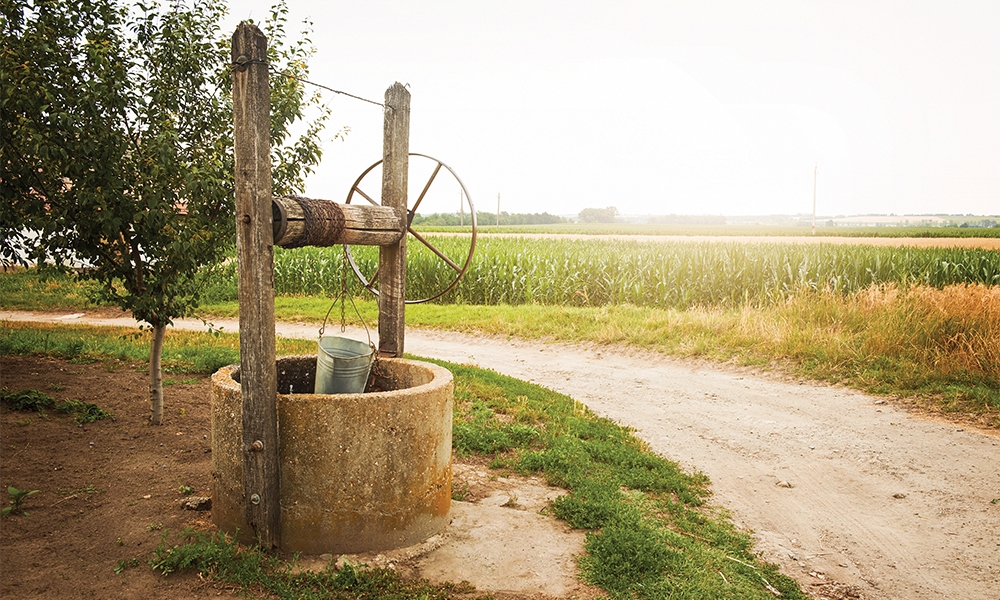
Care for God’s creation
A series on the social doctrine of the Church
A series on the social doctrine of the Church
The last of our seven themes of Catholic social teaching regards care for God’s creation. This world we live in is our common home, and the way we live in it and care for it is an essential element of our faith. As a child, my mother told me a story about her grandmother that always sticks in my mind. My great-grandmother was known throughout our whole rural, South Alabama community as an extremely kind, tolerant, and peace-loving woman. She was never known to have fits of temper or lash out in any way. There was one day, however, when a young cousin was visiting their home, and in an angry moment, he spit into their well. My great-grandmother was proud of her well because the water came from an underground spring and was always cold and clean. This act of spitting into the well was so disgusting to her, that without a word, she broke off a switch and soundly thrashed that little cousin until he learned what a terrible thing he had done.
The last of our seven themes of Catholic social teaching regards care for God’s creation. This world we live in is our common home, and the way we live in it and care for it is an essential element of our faith. As a child, my mother told me a story about her grandmother that always sticks in my mind. My great-grandmother was known throughout our whole rural, South Alabama community as an extremely kind, tolerant, and peace-loving woman. She was never known to have fits of temper or lash out in any way. There was one day, however, when a young cousin was visiting their home, and in an angry moment, he spit into their well. My great-grandmother was proud of her well because the water came from an underground spring and was always cold and clean. This act of spitting into the well was so disgusting to her, that without a word, she broke off a switch and soundly thrashed that little cousin until he learned what a terrible thing he had done.
The well was a source of life for the family, and to spit in it meant to have contempt for the good of all. But in many ways, in our relationship to our environment and the gifts of God that sustain our life on this planet, we often do “spit in the well.” In May of 2015, our Holy Father, Pope Francis, wrote an encyclical Letter entitled Laudato Si’ which was addressed to the whole world to consider our relationship and care for our common home. I remember the angry response given to the Holy Father by many because he directly addressed the increasing use of air-conditioning in many areas of the developed world. We get so easily angered when any level of convenience is challenged for us. Often, we are so unwilling to make even the slightest change to our “disposable” culture and embrace a way of life that does not so terribly exploit the resources and goods of our world.
When we explore the sacred scriptures, we will see that care for God’s creation is woven throughout the holy Word. Often, manifesting that care requires that we leave behind our desire to dominate and, instead, become co-creators with Our Lord. One phrase of Scripture always fills me with hope and desire to join my life to God’s work of salvation: “Now, in the place where He was crucified, there was a garden.” (John 19:41) I love this verse because it brings to mind the garden paradise which was lost by our first parents, Adam and Eve, when in their disobedience, they wanted to dominate all things rather than properly enjoy the garden God had given them. The Cross of Our Lord stood in a garden so that all of our disobedience and desire to dominate could be transformed by His sacrificial love. Desiring to live and work in a transformative way in that garden where He was crucified – our world – restores and strengthens the whole human family. From His side flowed blood and water, a “well-spring of all holiness.” May we never spit in that well with our thoughtlessness and greed.
Father John G. McDonald is currently pastor of Sacred Heart of Jesus Catholic Church in Anniston. He was principal and then president of John Carroll Catholic High School from 2008 to 2016, and he served as the Carl J. Peter Chair of Homiletics at the Pontifical North American College in Rome from 2016 to 2019.



